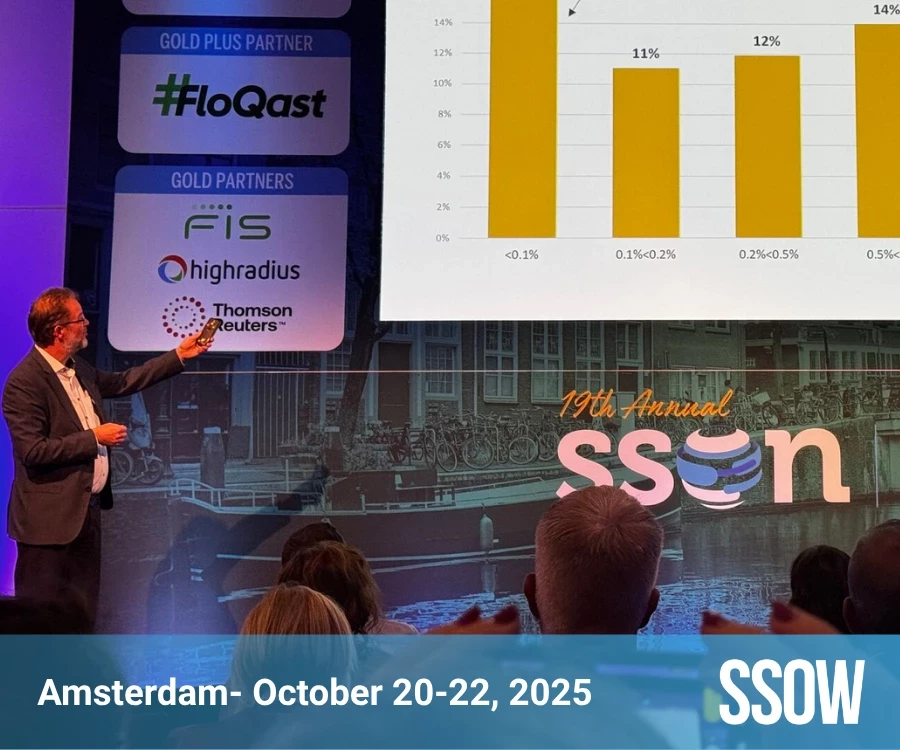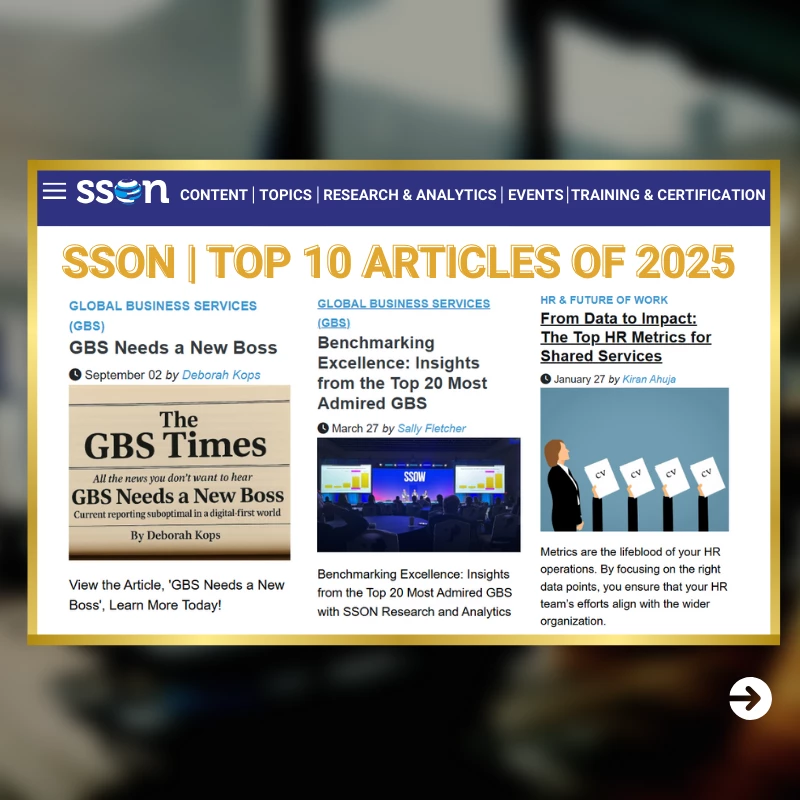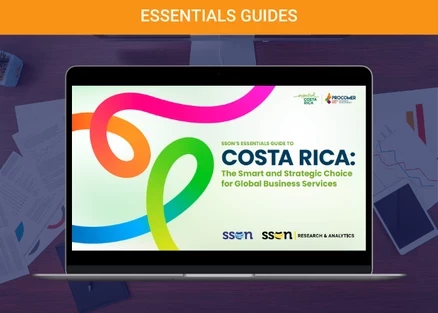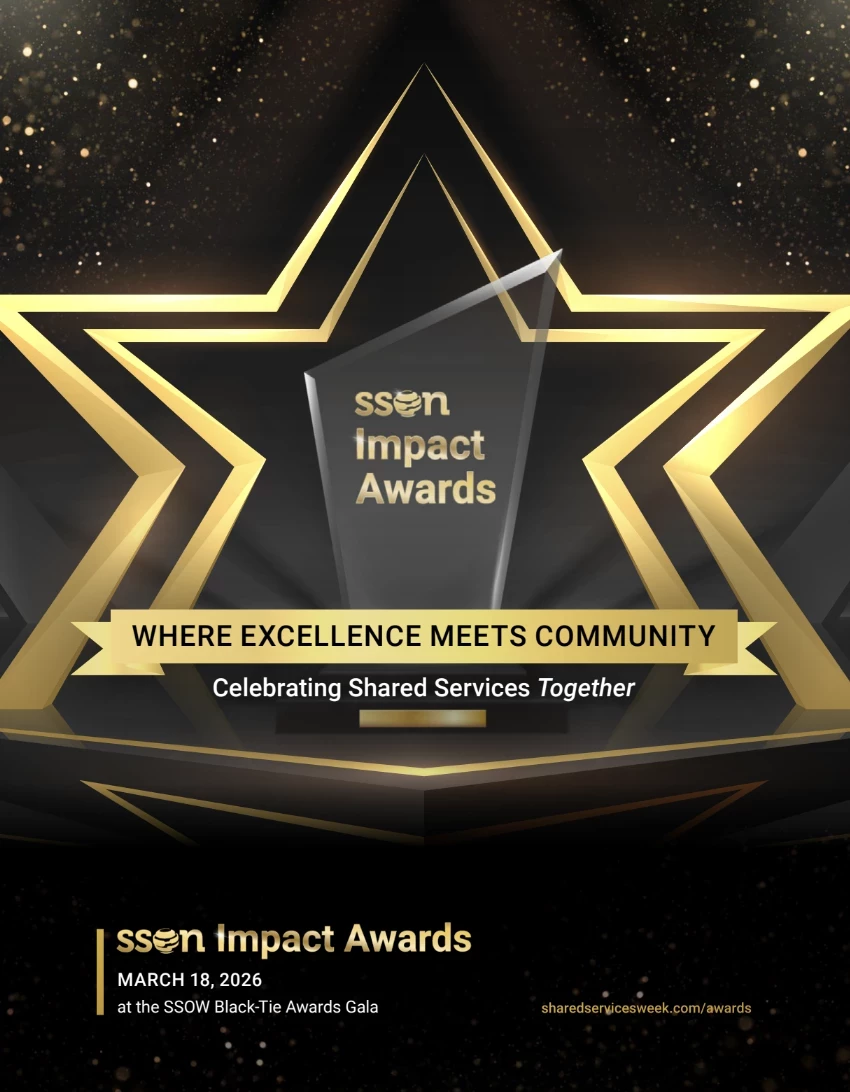It’s 2025: Ten Resolutions GBS Leaders Need to Make Now
Deborah Kops shares her recommended resolutions for GBS leaders in 2025
Add bookmark

This year will test the mettle of even the hardiest of global business services leaders. Will supply chains go catty-wumpus in response to threatened tariffs, driving GBS to deliver even more than their expected 5-7% per annum? Will enterprises decide to move work back to the US under fear of Trump? Will the geopolitical landscape become even more challenging? Will investment in transformation stop cold in its tracks? Will a shiny new toy replace GenAI?
Your guess is as good as mine; my magic 8 ball has gone on strike. But there are steps that GBS leaders should take now not only to future-proof their organizations in the short-term, but to occasion a long-overdue rethink of a model that is rapidly becoming stale. Perhaps now is the right time to file away (note: I didn’t say throw out) some of those (tired) tried and tested playbooks and practices, learn some new dance moves, and change the way GBS interacts with the enterprise.
So here’s a prescription from Dr Deb—ten resolutions that should see you through what portends to be a rocky year:
1. Take AI for what it is: The bloom is already off the rose, folks. Yes, AI in all its forms will change the way we work, just as the Internet did so many years ago, but the change it represents will be incremental, not revolutionary, and highly dependent on the changes we make in our organization, processes, workflows, and capabilities. What leaders need to do is stop overlaying AI on their operations as an efficiency tool but rather do the hard work to reimagine their target operating models to embed its power. It’s neither quick nor easy.
2. Mind your mindsets: Skills such as the ability to analyze or listen are critical to getting GBS work done. And capabilities drive outcomes, but performance ultimately comes from a team that exhibits the right mindsets. Does your team have a passion for growing the model? Are they commercially savvy? Are your customers truly at the heart of the decisions GBS makes? “Best” GBS organizations should get high ratings on the mindset scale.
3. Obsess about operations: We tend to forget that GBS at its core is about delivering work, not innovating for its own sake. Too many of us focus on “leader of the pack” syndrome rather than knuckling down and focusing on the way we operate and how our workflows from the business to GBS and back again. We can’t reimagine the work we do until we repair it. And, when GBS organizations bite the dust, poor operations is one of the prime reasons.
4. Chivvy your CHRO: One of the conclusions I’ve come to is that GBS’s number one stakeholder is more often than not the CHRO, even if the reporting line is to another CXO. They have outsized influence as a culture keeper, a people manager, and a hefty source of scope. If they believe that offshore operations don’t deserve enterprise-grade HR support, GBS is operating with one arm tied behind its back. Moving the CHRO along the GBS learning curve is imperative; too many GBS agendas are derailed because the chief people officer just isn’t bought in.
5. Slough off Trump: Globalization is here to say, despite what the new regime in Washington is reported to think. Telling corporations to unwind decades of harnessing the power of global talent is simply not in the cards, especially for business services operations. Might CXOs slow down the process, fearing retribution? Sure. Will the globalization of manufacturing jobs occupy the headlines? You can count on it. But will American CEOs reel back process operations? Very unlikely. Where will they obtain the talent at the right cost and scale in Boise? Or Birmingham?
6. Love landlording: It’s time to stop turning up our collective noses at a model that has as much potential as process ownership to “transform the business.” If you believe, as I do, that the greatest intrinsic benefit of GBS is to rewire the way the enterprise works, GBS has the track record and tools in spades. Proving that the corporate wheels won’t come off if processes are delivered out of eyesight and out of time zone, and helping the business get there can be as valuable as taking over. GBS leaders don’t always need to control to make an impact.
7. Stop pigeon-holing the team: Effective GBS leaders know that, with the right support and leaders, team members can do more than their job descriptions require. Determine, with a level of precision, the capabilities inherent in each role, and look for adjacencies. Can a center leader stretch to business relationship manager, assuming that domain mastery and emotional IQ are in place? Can a continuous improvement leader take on transition responsibilities? Versatility is the name of the game.
8. Make “less is more” GBS’s mantra: If there was ever a year for GBS frugality, it’s likely 2025. GBS leaders need to open a new bag of tricks—double-hatting roles where they make sense, eliminating hobby projects that won’t deliver a substantial near-term ROI, curtailing long-term projects that can be impacted by a rapidly changing business context, eliminating comfortable spans and layers.
9. Connect the dots: We talk about end-to-end, but few GBS organizations really drink the Kool-Aid. Our prevailing architectures still align us as servants to each function. While the investment dollars required to implement and operate a connected GBS organization will likely be very hard to come by, it’s possible to start the journey just by inventorying ways of working and technology in each function and find quick-wins leverage.
10. Make a lot of friends: If there were ever a time for GBS to get off its high horse and be seen as fully aligned to support every nook and cranny of the enterprise, it’s now. The quick responses, thoughtful problem-solving, empathy, and flexibility that a GBS team exhibits now will manifest itself in better stakeholder relationships, additional scope, more investment, and model institutionalization when times get better. Think of it as paying it forward.
So there you have it, GBS world. Our old ways won’t get us to where we need to go. Resolve to make even a few changes, and the industry—and the enterprises we support—will be better for it.
For those operating within finance, SSON is diving into the top finance trends of 2025 in the upcoming webinar 2025 Finance Trends: Preparing Your Back Office for the Year Ahead. Perhaphs there will a few more resolutions to add to your list this year- register now to find out!































